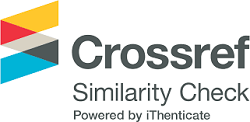Comparing the Performance of Molecular Docking Tools for HIV-1 Protease Inhibitors
Abstract
Human immunodeficiency virus (HIV) continues to pose a significant public health threat worldwide, disproportionately affecting marginalized and vulnerable populations despite advancements in prevention and treatment. One promising approach in the development of antiretroviral therapies is the inhibition of HIV-1 protease, a key enzyme in the virus life cycle. To this end, we evaluated 23 known inhibitors of HIV-1 protease using three docking methods - Autodock 4.2 (AD4), AutoDockVina (Vina), and a modified Vina (mVina)- and found that all three methods produced reasonable binding affinities for these ligands, but Vina performed best in terms of precision and docking success rates. The results provide important guidance for the selection of appropriate support tools for screening potential HIV-1 protease inhibitors in treating HIV/AIDS.
This is an Open Access article distributed under the terms of the Creative Commons Attribution License (http://creativecommons.org/licenses/by/4.0/), which permits unrestricted use, distribution, and reproduction in any medium provided the original work is properly cited.
Keywords
Full Text:
PDFTime cited: 0
DOI: http://dx.doi.org/10.55579/jaec.202372.400
Refbacks
- There are currently no refbacks.
Copyright (c) 2023 Journal of Advanced Engineering and Computation

This work is licensed under a Creative Commons Attribution 4.0 International License.










